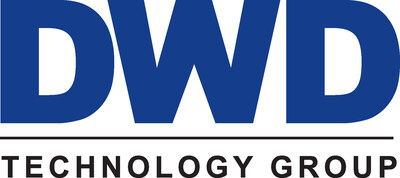Ultromics obtains Breakthrough Device FDA clearance for its Cardiac Amyloidosis screening device through the Total Product Lifecycle Advisory Program
Press Releases
Nov 20, 2024
EchoGo® Amyloidosis is an AI-based software-only medical device, which aims to improve early detection of Cardiac Amyloidosis, an underdiagnosed cause of heart failure.
EchoGo® Amyloidosis sits on Ultromics’ EchoGo® platform complementing the existing commercialized EchoGo® Heart Failure device.
OXFORD, England, Nov. 20, 2024 /PRNewswire/ — Ultromics’ EchoGo® Amyloidosis, clinical AI for echocardiography with the potential to revolutionize early detection of Cardiac Amyloidosis, has received US Food and Drug Administration (FDA) clearance. This milestone marks EchoGo® Amyloidosis as the first device enrolled in the FDA’s Total Product Lifecycle Advisory Program (TAP) to achieve marketing authorization. The device was among 15 breakthrough cardiovascular devices, to participate in the initial pilot launch phase of the FDA Total Product Lifecycle Advisory Program (TAP) which has since expanded with 55 companies currently enrolled.
This clearance makes EchoGo® Amyloidosis the first commercially available software-only medical device to facilitate detection of Cardiac Amyloidosis using echocardiography. Requiring a single routinely acquired echocardiographic clip, EchoGo® Amyloidosis needs substantially less clinical information to facilitate detection of the disease compared to current approaches.
Ultromics, a spin-out company from the University of Oxford (UK), has expanded its portfolio of FDA-cleared, AI-based Echo diagnostics to include EchoGo® Amyloidosis.
This development, in collaboration with Janssen Biotech, Inc., a Johnson & Johnson Company, and with support from Pfizer, motivated by their continued commitment to expediting the suspicion, diagnosis and clinical outcomes of Light Chain and ATTR Cardiac Amyloidosis, respectively. Janssen supported the development of the device, while Pfizer supported expediting the performance testing and validation ahead of the regulatory submission.
Ross Upton, PhD, CEO and Founder of Ultromics, said: “Echocardiography is a powerful tool for evaluating cardiac structure and function and is central to the detection and monitoring of disease. However, there are some diseases that are very challenging for even the most expert clinician to detect on an echocardiogram. Requiring only a single apical 4 chamber image, EchoGo® Amyloidosis identifies Cardiac Amyloidosis, and will help drive earlier access to appropriate treatment and care for patients with this underdiagnosed disease.”
The ability to automatically detect and flag potential Cardiac Amyloidosis with limited clinical information has important practical ramifications, particularly for screening, in clinical centers without the time, resource, or expertise to identify Cardiac Amyloidosis from the echocardiogram, which often has an unspecific presentation on the imaging.
Prof. Sanjiv J. Shah, MD, Northwestern University, said “Improving the detection of Cardiac Amyloidosis is vital as early detection provides the greatest therapeutic benefit for patients. Novel AI-based diagnostic tools such as EchoGo® Amyloidosis from Ultromics should help facilitate disease identification, particularly in clinics and hospitals restricted by expertise and resource. With more therapies becoming available, the FDA approval of EchoGo® Amyloidosis is timely.”
What is Cardiac Amyloidosis?
Cardiac Amyloidosis is an infiltrative cardiomyopathy in which abnormal precursor proteins aggregate to form amyloid fibrils that deposit within the myocardial extracellular matrix, resulting in a restrictive cardiomyopathy. The two primary precursor proteins that form the predominant subtypes of Cardiac Amyloidosis in the United States of America are transthyretin (ATTR) and immunoglobulin light chains (AL). Both ATTR and AL Cardiac Amyloidosis are systemic diseases whereby Amyloidosis is not only isolated to the heart. Indeed, Amyloidosis can affect the gastrointestinal, visual, renal, neural, cardiac, and musculoskeletal systems, often presenting with non-specific symptoms that make it difficult to detect.
The hallmarks of the cardiac manifestation are generally considered to be consistent between AL and ATTR subtypes, with diastolic dysfunction, left ventricular thickening of the myocardium, atrial fibrillation, abnormal longitudinal strain, apical sparing, atrial enlargement and pericardial effusion all being common(1–3). The consequence of the disease is severe, and patients often suffer with increasingly debilitating symptoms and diminishing quality of life, owing to a poor understanding of how to manage their heart failure and frequent, high burden symptoms(4).
In ATTR Cardiac Amyloidosis, patients diagnosed with end-stage (stage III) versus early-stage (stage I) disease have a median survival time of approximately 2 years compared to about 5.8 years(5). Likewise, patients diagnosed with end-stage (stage IV) versus early-stage (stage I) AL Cardiac Amyloidosis have median survival time of 0.4 years compared to 4.6 years(6). Thus, early diagnosis of Cardiac Amyloidosis can dramatically reduce the debilitating nature of the disease and may extend survival even further with access to appropriate therapy.
Diagnosing Cardiac Amyloidosis
Due to the non-specific presentation and frequent coexistence with other cardiac conditions, Cardiac Amyloidosis is often missed at initial clinical visits. Patients with heart failure with preserved ejection fraction (HFpEF) are a group particularly at risk for Cardiac Amyloidosis, but Cardiac Amyloidosis is commonly overlooked in this population, with up to two-thirds of cases missed (7–9). Furthermore, HFpEF itself is frequently underdiagnosed(10), suggesting that the absolute number of patients with undetected Cardiac Amyloidosis may be even higher. This diagnostic delay has significant consequences, leading to progressively worsening symptoms, poor survival, repeated hospitalizations, and numerous medical consultations (4,11,12). Despite the need for accurate identification, most patients referred for diagnostic testing do not have Cardiac Amyloidosis, indicating that both confirming and excluding Cardiac Amyloidosis remains a challenge in clinical practice (13,14). Compounding this issue, current diagnostic tools, including traditional echocardiography, often fall short by not reliably connecting findings to specific clinical investigations for Cardiac Amyloidosis. Importantly, echocardiography faces challenges due to variability in image acquisition, measurement, and interpretation across all phases of use.
What is EchoGo® Amyloidosis?
EchoGo® Amyloidosis is a cutting-edge AI-powered tool designed to enhance the detection and management of Cardiac Amyloidosis, specifically tailored to address common diagnostic challenges in this underdiagnosed condition. Leveraging standard echocardiogram images, it enables clinicians to identify potential cases with enhanced accuracy and efficiency, requiring only a single apical 4-chamber echo video clip.
EchoGo® Amyloidosis is part of Ultromics’ EchoGo® platform, complementing the EchoGo® Heart Failure device to provide a robust solution for diagnosing heart failure and its underlying causes. Together, these tools enhance diagnostic accuracy, enable systematic screening, and support timely access to potentially life-saving therapies. The platform is further supported by reimbursement pathways: outpatient settings are covered under Category III CPT Code 0932T, assigned to APC 5743 effective January 1, 2025. For inpatient use, it continues to benefit from coverage through NTAP XXE2X19.
Ultromics’ medical devices are software-only, manufactured internally, that use an image from a routinely acquired echocardiogram taken from a patient which is then used to report on the likelihood of the specified disease, in this case, Cardiac Amyloidosis. The device uses artificial intelligence to produce a classification which is intended to inform an interpreting clinician of the likelihood of the disease and can be automatically returned from the Ultromics’ cloud-based architecture to the clinical systems and appended to the patient records. Integration at the clinical site involves utilizing existing hardware, with no requirement for additional equipment and the device operates as a Software-as-a-Service (SaaS) model making the solution highly scalable and able to be deployed rapidly on a large scale.
EchoGo® Amyloidosis has demonstrated (publication pending – data taken from EchoGo® Amyloidosis FDA submission):
- EchoGo® Amyloidosis demonstrated 84.5% sensitivity and 89.7% specificity within the target population of individuals aged 65 and older with heart failure, meeting key a priori acceptance criteria. This performance underscores EchoGo® Amyloidosis’ potential as a reliable tool in detecting Cardiac Amyloidosis within its intended population(15).
- Consistent performance was observed across key Amyloidosis subtypes, with sensitivity rates of 84.4% for AL Amyloidosis, 85.8% for Wild-type Transthyretin Amyloidosis (TTRwt), and 86.3% for Hereditary Transthyretin Amyloidosis (TTRv). This consistency highlights the system’s broad applicability across different forms of Amyloidosis(15).
- In a subgroup analysis matched for age, sex, and ventricular wall thickness, EchoGo® Amyloidosis maintained excellent diagnostic performance, achieving 83.4% sensitivity and 90.6% specificity, confirming its reliability when compared to phenotypically similar controls(15).
- EchoGo® Amyloidosis demonstrated 100% repeatability, meaning that the system produced the same diagnostic output when analyzing the same image multiple times. This performance underscores the system’s reliability for consistent diagnostic outcomes(15).
These results underscore the strength, precision, and scalability of EchoGo® Amyloidosis, positioning it as a transformative tool in the fight against Cardiac Amyloidosis. Designed to integrate seamlessly into clinical workflows, this powerful AI-driven solution enables clinicians to identify and address Cardiac Amyloidosis efficiently, helping patients navigate toward timely, tailored treatment. Developed and validated through a robust, multi-site international collaboration, EchoGo® Amyloidosis draws from the expertise and data of 9 centers and their clinical outreach sites, representing a breakthrough in global efforts to close the diagnostic gap in Cardiac Amyloidosis and redefine standards of care for this challenging disease.
To learn more, visit ultromics.com
References:
1. Falk RH, Alexander KM, Liao R, Dorbala S. AL (Light-Chain) Cardiac Amyloidosis: A Review of Diagnosis and Therapy. Journal of the American College of Cardiology. 2016 Sep 20;68(12):1323–41.
2. Dorbala S, Ando Y, Bokhari S, Dispenzieri A, Falk RH, Ferrari VA, et al. ASNC/AHA/ASE/EANM/HFSA/ISA/SCMR/SNMMI expert consensus recommendations for multimodality imaging in cardiac amyloidosis: Part 1 of 2—evidence base and standardized methods of imaging. J Nucl Cardiol. 2019 Dec;26(6):2065–123.
3. Kittleson MM, Ruberg FL, Ambardekar AV, Brannagan TH, Cheng RK, Clarke JO, et al. 2023 ACC Expert Consensus Decision Pathway on Comprehensive Multidisciplinary Care for the Patient With Cardiac Amyloidosis. Journal of the American College of Cardiology. 2023 Mar 21;81(11):1076–126.
4. Lane T, Fontana M, Martinez-Naharro A, Quarta CC, Whelan CJ, Petrie A, et al. Natural History, Quality of Life, and Outcome in Cardiac Transthyretin Amyloidosis. Circulation. 2019 Jul 2;140(1):16–26.
5. Gillmore JD, Damy T, Fontana M, Hutchinson M, Lachmann HJ, Martinez-Naharro A, et al. A new staging system for cardiac transthyretin amyloidosis. European heart journal. 2018 Aug;39(30):2799–806.
6. Kumar S, Dispenzieri A, Lacy MQ, Hayman SR, Buadi FK, Colby C, et al. Revised prognostic staging system for light chain amyloidosis incorporating cardiac biomarkers and serum free light chain measurements. Journal of clinical oncology : official journal of the American Society of Clinical Oncology. 2012 Mar;30(9):989–95.
7. González-López E, Gallego-Delgado M, Guzzo-Merello G, de Haro-del Moral FJ, Cobo-Marcos M, Robles C, et al. Wild-type transthyretin amyloidosis as a cause of heart failure with preserved ejection fraction. European Heart Journal. 2015 Oct 7;36(38):2585–94.
8. Hahn VS, Yanek LR, Vaishnav J, Ying W, Vaidya D, Lee YZJ, et al. Endomyocardial Biopsy Characterization of Heart Failure With Preserved Ejection Fraction and Prevalence of Cardiac Amyloidosis. JACC Heart failure. 2020 Sep;8(9):712–24.
9. AbouEzzeddine OF, Davies DR, Scott CG, Fayyaz AU, Askew JW, McKie PM, et al. Prevalence of Transthyretin Amyloid Cardiomyopathy in Heart Failure With Preserved Ejection Fraction. JAMA Cardiology. 2021 Nov 1;6(11):1267–74.
10. Borlaug BA, Sharma K, Shah SJ, Ho JE. Heart Failure With Preserved Ejection Fraction: JACC Scientific Statement. J Am Coll Cardiol. 2023 May 9;81(18):1810-34. doi: 10.1016/j.jacc.2023.01.049.
11. Dang D, Fournier P, Cariou E, Huart A, Ribes D, Cintas P, et al. Gateway and journey of patients with cardiac amyloidosis. ESC Heart Fail. 2020 Jun 26;7(5):2418–30.
12. Ney S, Ihle P, Ruhnke T, Günster C, Michels G, Seuthe K, et al. Epidemiology of cardiac amyloidosis in Germany: a retrospective analysis from 2009 to 2018. Clin Res Cardiol. 2023 Mar 1;112(3):401–8.
13. Nitsche C, Mascherbauer K, Calabretta R, Koschutnik M, Dona C, Dannenberg V, et al. Prevalence and Outcomes of Cardiac Amyloidosis in All-Comer Referrals for Bone Scintigraphy. Journal of Nuclear Medicine. 2022 Dec 1;63(12):1906–11.
14. Dower J, Dima D, Lalla M, Patel AR, Comenzo RL, Varga C. The use of PYP scan for evaluation of ATTR cardiac amyloidosis at a tertiary medical centre. Br J Cardiol. 2022;29(2):19.
15. EchoGo® Amyloidosis 510K FDA submission.
Photo – https://mma.prnewswire.com/media/2561754/Ultromics.jpg
![]() View original content to download multimedia:https://www.prnewswire.com/news-releases/ultromics-obtains-breakthrough-device-fda-clearance-for-its-cardiac-amyloidosis-screening-device-through-the-total-product-lifecycle-advisory-program-302311450.html
View original content to download multimedia:https://www.prnewswire.com/news-releases/ultromics-obtains-breakthrough-device-fda-clearance-for-its-cardiac-amyloidosis-screening-device-through-the-total-product-lifecycle-advisory-program-302311450.html
SOURCE Ultromics





